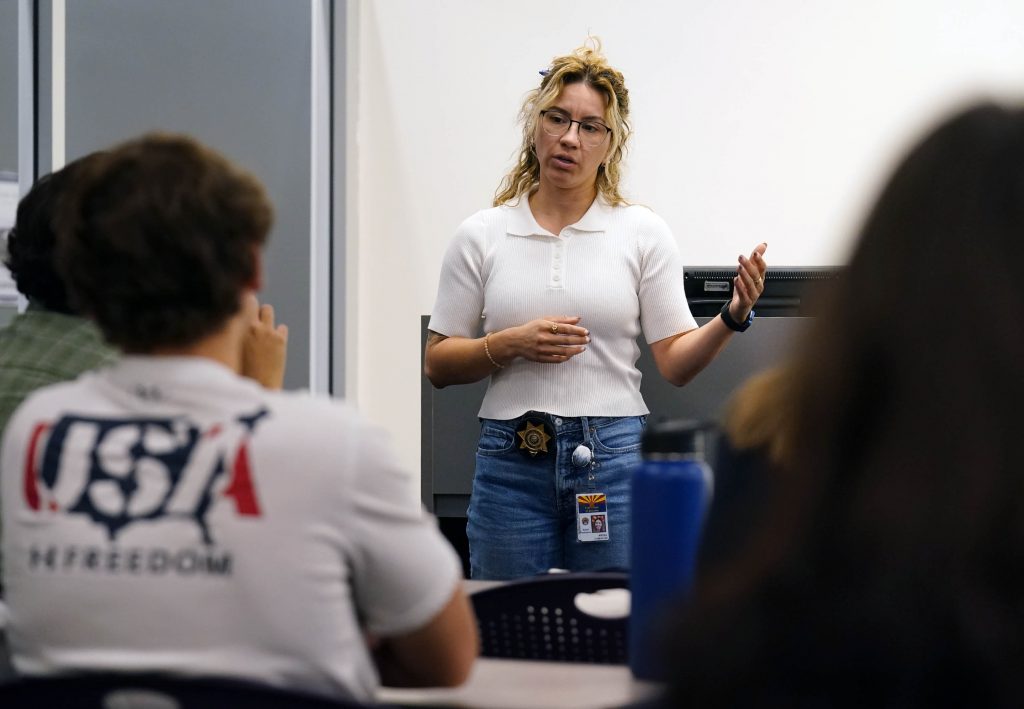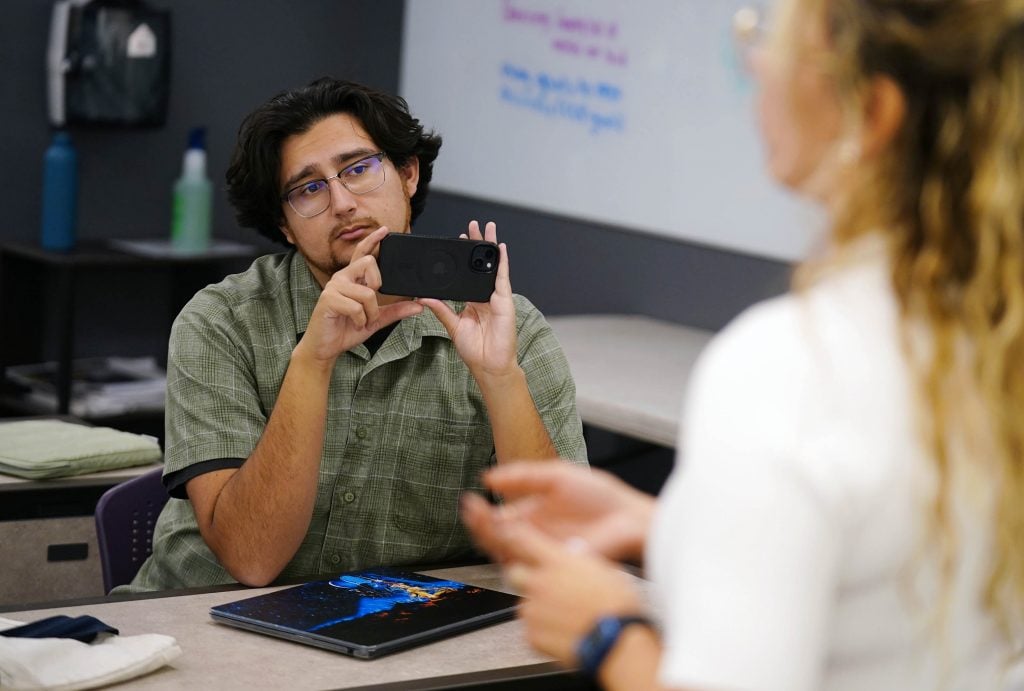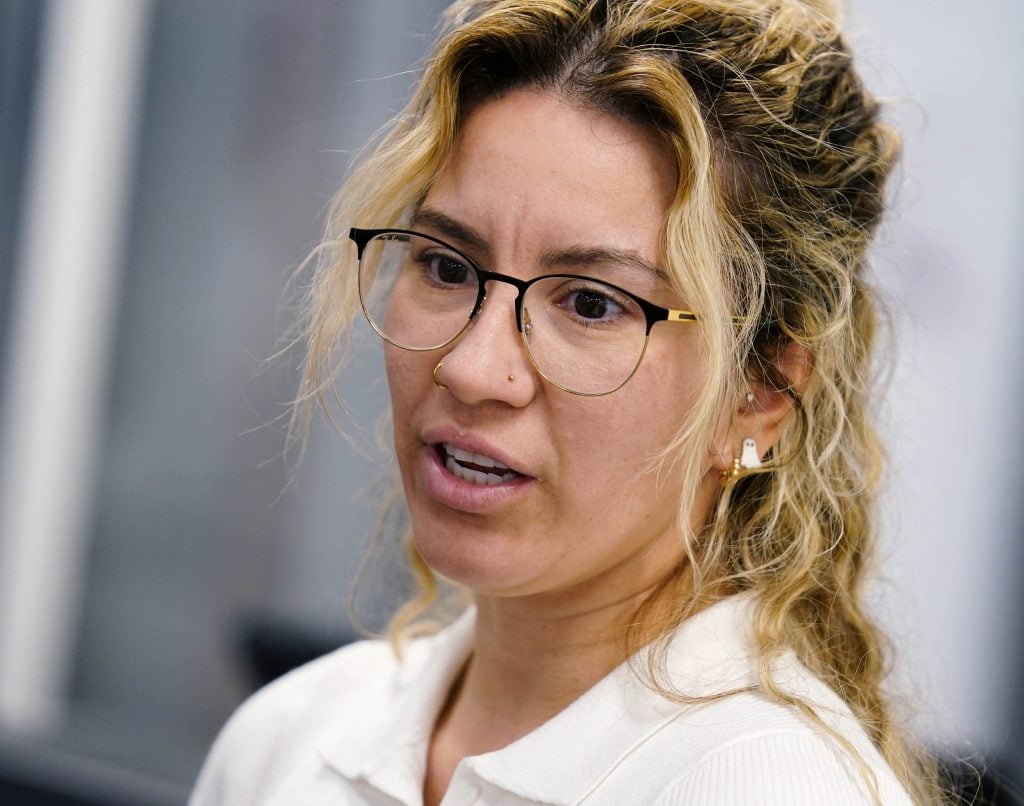
Photos by Ralph Freso
Angel Camacho grew up in the Grand Canyon University neighborhood and got degrees at GCU in criminal justice and psychology in 2016, figuring she would eventually enter law school.
That all changed following her uncle’s murder.
“He lived in apartments off 35th Avenue and Camelback. He was outside on his phone and three kids came up and said, ‘We want to rob you,’ and he kept walking. They had a gun. That’s how it went down. One was on probation,” Camacho said.
On Wednesday night, she told a group of GCU students who are reprising the Law Enforcement Club that she became interested in probation and how she could improve it.
“We can reduce recidivism by enhancing safety,” she said. “And a lot of those kids are set up to fail because they weren’t given the tools and resources.”
Camacho became an adult probation officer for the Maricopa County Adult Probation Department, which supervises the probation of more than 50,000 offenders.

At first, she was seeing it “from the victim side of things,” but in her work, she began to see that much of it is helping offenders make behavioral changes, she said after her presentation.
“You can change it from the inside out. I make it about them and their future and how that outcome can change,” she said. “Clients will tell me, ‘I do drugs because my parents do, and I want to feel closer to them. They cared about drugs but not about me.’ So I tell them their kids see you and want to be like you. It goes back three generations, until they begin to think, ‘I might not be doing what’s right but will be better for my kid.’”
Camacho told students that her first year as an officer was challenging and she almost quit. “You are wearing not only the social worker hat but wearing the law enforcement hat.”

She wears a firearm, practices shooting and serves warrants but also uses the cognitive behavioral therapy skills she learned in psychology at GCU.
“Be curious, not judgmental. They are drug addicts; these people are taking pills. But peel back the onion layers,” she said of working with clients to help them avoid jail while being monitored.
“They need to tell us what they are doing, hour by hour, day by day. It’s a structure program; people get into trouble with too much time on their hands.”
The toughest part of the job happened in that first year.
“My first client passed away. I had her for two weeks. She was inside the house when I went to see her on a home visit,” she said.
“You have to realize you gave it 100% and tried. You will have people pass away, whether it’s natural or an overdose, or reoffend. You have to ask, what did I do and what can I do differently, but at the end of the day, not taking it home,” she said. “That was the hardest thing.”
Camacho has had great success helping the department enact the Women’s Risk Needs Assessment in Maricopa County, which in 2022 won a National Association of Counties Achievement Award in 2022.
“Offender screening or any assessments were created for men in the criminal justice system. But there was increased crime by women for drugs, shoplifting … They are different than men. They are more likely to be sexually abused and face trauma, like domestic violence, and are caregivers,” she said of a program that now uses gender-responsive methods of supervision.

Today, her clients are all women.
She told students that the department is hiring and, despite the challenges, the rewards are great.
“Once you start seeing the clients change, we call it ‘change talk.’ I’ve seen clients who don’t have any of their kids, they’ve gone (missing from probation) and picked up charges, but now they have their kids, they have a house, they are sober.”
One client was using 50 pills a day and was pregnant when under her supervision. She busted her and was called every name in the book. She cleaned up and now works. Another former client calls her every year. She knows his voice.
“Angel! I just want to give you an update. I bought a house.”
“He started trucking, then started his own company, got engaged, got a house,” Camacho said. “That’s the rewarding part.”
Grand Canyon University senior writer Mike Kilen can be reached at [email protected]
***
Related content:
GCU News: She traded work boots for law books
GCU News: Officer, newly commissioned at GCU, carries on family's military tradition



































































